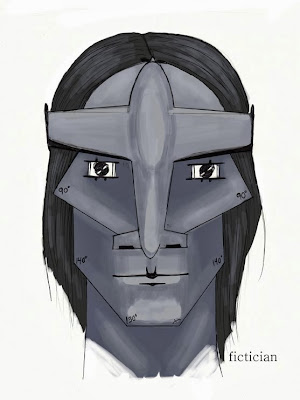From a word .doc to .epub with one (or two) free programs: Calibre and Sigil. Both programs are fairly intuitive to use, and have decent documentation, but they can still trip you up. There is a learning curve of trial and error.
An .epub is a Nook-friendly file you can upload directly to Barnes and Noble Pub-It if you are publishing through their direct line. But it's also a legit file that you can load onto your Nook directly or read with Adobe Digital Editions.
Two Nice, Free Programs: Calibre and Sigil
Converting to .epub is made super-easy with Calibre. Download here. I have only used the Windows version, so I can't speak for the other OS. But Calibre has so far been a champion. (Though their previewer is a little flaky.) To find guides on formatting a word .doc for Calibre, help on the top bar of their website sends you to this guide and this general guide. Somewhat useful. Easy to find through the Calibre program's help, impossible to find through their site. Perhaps very easy to find, but if so, I got lost.
And if you have last minute changes to make and don't want to add more files to Calibre and reconvert the whole thing - Sigil is a good wysiwyg editor. Download here.
A Note on Kindle formatting:
Epubs are not Kindle files. To make a .mobi file, you will follow most of the same rules for .epub formatting, but conversion is different. You will have to first make a .prc, which requires MobiPocket Creator (also free), and you'll have to check it with Kindle Previewer (note: this is the third orange heading).
Tips for Calibre:
- How you format the document in the first place matters a lot. Simpler is better. It's a good bet if you stick to the Normal style text except for Heading 1 and Heading 2.
- Note: there is a lot of overlap between Amazon formatting advice and a Calibre-friendly document - I used the same doc to generate both Nook and Kindle. Amazon KDP guidelines can be found here.
- Note: For fiction, the vogue seems to be to get your text to mimic the layout on a real book page. Thus use indents for first lines and avoid spaces between paragraphs, because that smacks of the internet. It is important that you go into paragraph styles to make these changes. The Smashwords guide has the best paragraph style tutorial I've read so far.
- Within the .doc, you can use H1 and H2 to build a table of contents (TOC) - this works with Field Codes, and is great for .prc/.mobi (Kindle) and .epub (Nook). It creates an effective linking TOC
- Note that field codes will jack up your Smashwords conversion (for Smashwords, you should definitely follow the Nuclear Method and strip the document).
- You will have to save the .doc as a "Web Page, Filtered" which will give you a .htm/.html file
- Add your that document to your Calibre Library, edit the Metadata to reflect correct name, title, etc.
- When you press the Convert Books button, you will get a lot of options.
- Make sure under "Epub Output," you have checked the box to "Preserve Cover Aspect Ratio" otherwise your cover will stretch and your heroes will look abnormally wide.
- Under "Table of Contents," you probably want to check the box for "Do not add detected chapters to the TOC." I did not check this at first, and my TOC, which had H1 and H2 levels, had an extra set of Heading 1 chapter links frontloading the TOC. This was not desired.







